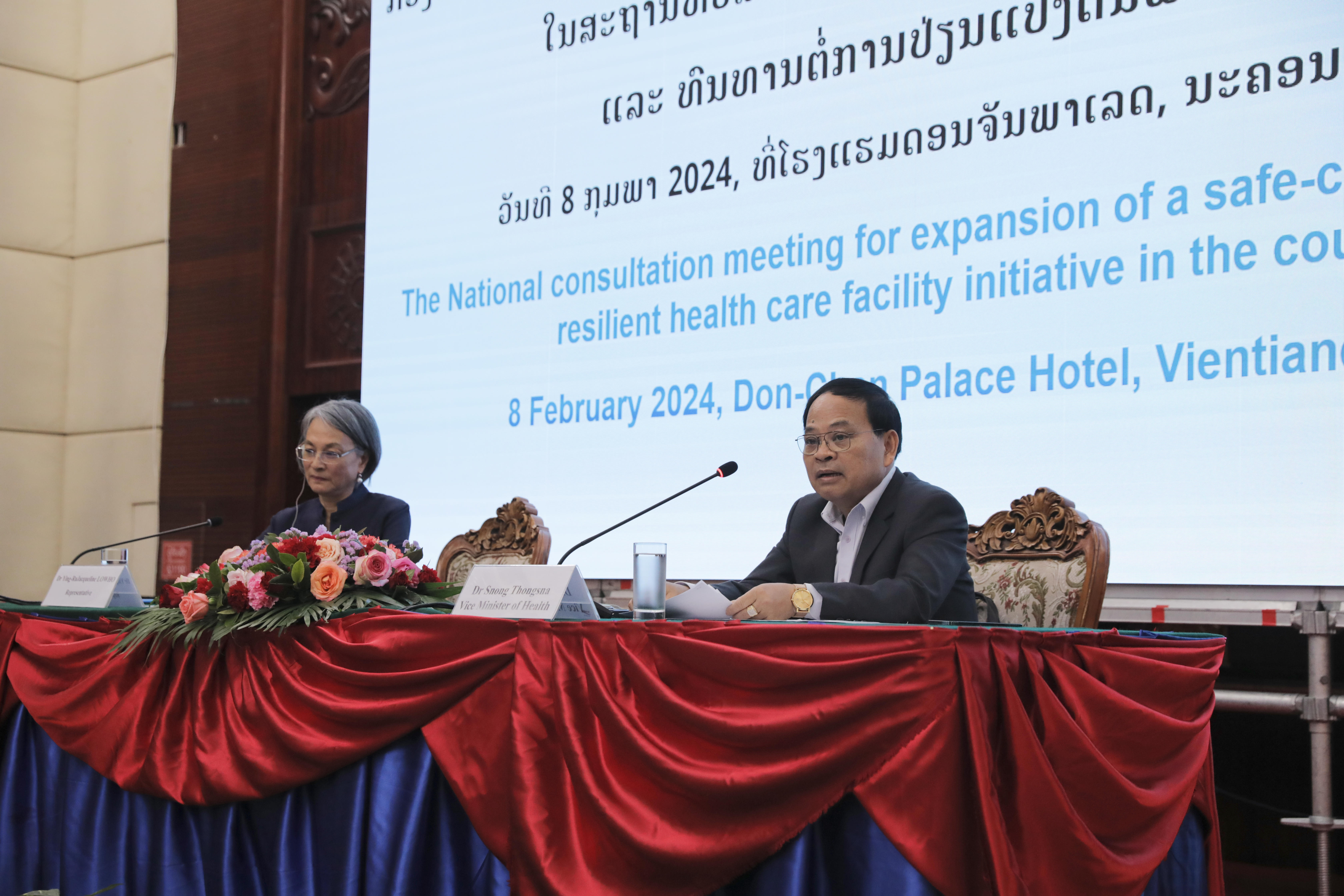Health care facilities in the Lao People’s Democratic Republic (PDR) face significant gaps in water, sanitation, and hygiene (WASH) services, leaving them highly vulnerable to climate change-induced extreme weather, a recent assessment has found.
The Lao National WASH Survey 2021 covering almost all the country’s health centres and hospitals found only 16% had basic hygiene services and just 19% had waste management services. While 98% of health care facilities had some level of sanitation services, just 2% had fully appropriate services. Some provinces were especially underserved.
Most facilities had been affected by extreme weather in the past 20 years – with more than half severely damaged by weather events – yet only 1% had any measures in place to reduce their vulnerability, according to a report launched in Vientiane today by the Government of Lao PDR, the World Health Organization (WHO) and partners.
The report suggested a monitoring framework and measures to enhance WASH services and climate resilience in the country, and ultimately strengthen the health system.

Vice Minister of Health HE Dr Snong Thongsna thanked partners for their support for the report and its clear, strategic actions and monitoring framework.
“This study is critically important to better understand and improve current level of access to WASH services in the country, and the threat that climate change poses to our health facilities. The data demonstrates the scale of the issue, and the resources and direction necessary to address climate and environmental challenges.”
Dr Snong said universal access to WASH, safe disposal and management of medical waste, and climate-resilient health care facilities are necessary for quality health care. Many Government strategies and tools aim to address these preconditions, including the Health National Adaptation Plan 2023 and the draft National Strategy on Climate Change.
“This survey is an urgent wake-up call for all health care workers and managers of health care facilities to improve water, sanitation, hygiene and the climate-resilience of both infrastructure and staff capacity. In this important work, it will be crucial to have leadership from the directors and deputy directors of all health care facilities and facility-level committees,” Dr Snong said.

WHO Representative to Lao PDR Dr Ying-Ru Jacqueline Lo said WHO was pleased to have supported the National WASH Survey, to help understand the current situation, identify opportunities to close the gaps and set targets to each by 2025 and 2030. Dr Lo said WHO would continue working with the Government and development partners to help achieve the targets.
“Lao PDR is projected to experience more extreme weather, a 10– 30% increase in rainy season rainfall and temperature increases of 2–3 °C by 2050. In this context, effective and safe health-care services and facilities depends on WASH services, and climate resilience,” said Dr Lo.
“Too often, this is not available in health-care settings, exposing patients, staff and visitors to unacceptable risks. The Lao National WASH Survey 2021 is an invaluable baseline to define the national road map, mobilize resources and partnerships, and encourage action in this crucial area. WHO is prioritizing the health impacts of climate change in its support to Lao PDR, given the scale of the threat it poses.”

The launch of the report comes after the December 2023 United Nations Climate Change Conference COP28, which for the first time, prioritized the need for an ambitious response to the impacts of climate change on public health.
The event saw Lao PDR became one of 123 countries to endorse the COP28 Declaration on Climate and Health in the United Arab Emirates. The declaration expressed grave concern about the negative impacts of climate change on health. It called for urgent actions so countries can benefit from reductions in greenhouse gas emissions, lower air pollution and shifts to sustainable lifestyle practises.
Partners involved in supporting the development of the Lao National WASH Survey 2021 include the Global Environment Facility (in partnering with Accredited Entity - United Nations Development (UNDP), Green Climate Fund for Readiness program (in partnering with Accredited Entity WHO), and the Government of Japan via the UHC 2030 partnership.

